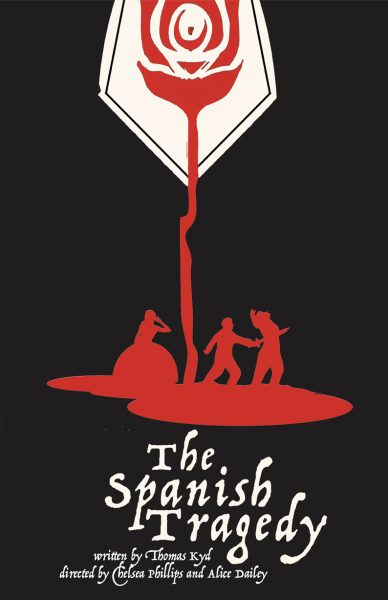“Parasite”: Tonal Imbalance in a Universally-Acclaimed Film
February 4, 2020
“Parasite,” directed by Bong Joon-ho, is the story of the unemployed Kim family and its elaborate plan to coax its way into financial stability through the prosperous Park family. At the start of the film, the audience is given a window into the life of the Kim family, as well as their street-smart reliant way of getting by from day to day. Living in a South Korean semi-basement plagued by stink bugs as well as a drunk who insists on relieving himself outside their home, the Kim family poses a stark contrast to the Park family. The Parks reside in a gated home, quite literally sealed off from the outside world. The home and its verdant yard, constructed by the famed architect Namgoong Hyeonja, provide the major setting for most of the film.
The Kims are first exposed to the Parks when Kim Ki-woo (Woo-sik Choi) is given the task of tutoring Park Da-hye (Ji-so Jung) by his old friend, Min-hyuk. On his first trip to the Park household, Ki-woo evaluates the family dynamic and quickly determines that he will be able to take advantage of Mrs. Park’s lack of intuition. The following story, for at least the first half of the film, is a comedic romp in which the Kims slowly infest the Park household. Kim Ki-taek (Kang-ho Song), the father of the Kim family, gets a position as a driver for Park Dong-ik (Lee Sun-kyun), the father of the Park family. Chung-sook (Chang Hyae-jin), the mother of the Kim family, takes the role of a housekeeper to the Parks and works closely with Yeon-gyo (Cho Yeo-jeong), mother of the Park family. Lastly, Kim Ki-jeong (Park So-dam), daughter of the Kim family, becomes an art tutor for Park Da-song (Jeong Hyeon-jun), the young son of the Park family. With their symbiotic relationship forged, the Kim family becomes the metaphorical “Parasite” feeding off of the Park family’s wealth.
The entirety of the Kim family’s plot to weave itself into the life of the Park family is delightful to watch. Rather than presenting themselves as a family when working in the Park home, the Kims take up pseudonyms and pretend to be strangers. A comedic highlight of the film comes in the form of Ki-taek rehearsing a scripted conversation to be had with Yeon-gyo about hiring Chung-sook as a housekeeper. The previous housekeeper is ousted in a series of scenes that are equally entertaining in their own right. Ki-jeong and Ki-woo manipulate the housekeeper’s vicious allergy of peaches to make it seem as if she is sick with tuberculosis. The rest of the Kim family’s mischief play out with an equal sense of wit and charm until an event that takes place in the second half of the film. When the Park family’s old housekeeper shows up at the doorstep of the Namgoong-designed house and reveals an architectural secret, the movie takes a sharp tonal shift. Such a shift can work to the betterment of a movie, in particular if the momentum of the shift is maintained throughout the remainder of the film. This is not the case with “Parasite.” After taking a turn, the film begins to drift away from its new direction before returning with full force in the final act. The tonal inconsistency of the second half of the film is the greatest failure of “Parasite” and takes away from the finale’s intended impact.
What “Parasite” lacks in stylistic consistency, it makes up for with its camerawork and cinematography. Almost every shot of the film doubles not only as a window into the story but also as a form of conveying the atmosphere of each scene. Shots in the Kim household emphasize the awkward and claustrophobic nature of their home, with uncomfortable juts in the walls and an overly crowded hallway. Meanwhile, wide shots within the Park home express geometric symmetry and spacious rooms, alluding to the picture-perfect nature of the wealthy family. The film also boasts an overwhelming amount of symbolic imagery, with the prime example being its usage of staircases to portray the class differences between the Kims and the Parks. The scholar’s rock that is prominent throughout the film, which was given to the Kim family by Min-hyuk, also holds a symbolic importance. It is said by Min in the movie that the rock serves as a symbol for the success of its owner. However, the rock is eventually perverted into something much more physical than spiritual which leaves the audience wondering whether or not the rock was a symbol at all.
In a sense, the lack of clarity in regarding the scholar’s rock makes for a good metaphor of “Parasite” as a film. The story’s intentions are clear in the beginning, but by the end of the film the narrative becomes muffled and vague. Despite its tonal flaws, “Parasite” is by no means a failure of a film; it captivates the audience for the majority of the story and even provokes thought about the relationship between the upper and lower class. The film’s title is as much a reference to the upper class feeding off of the labor of the poor as it is a reference to the Kim family leeching off the success of the Park family. “Parasite” is caught in a strange limbo between being a fun comedy and a thought-provoking drama, but ultimately the film is rendered to be a hard recommendation for the casual audience member. “Parasite” has received a total of six Academy Award nominations including Best Picture, Best Director and Best Foreign Language Film.











